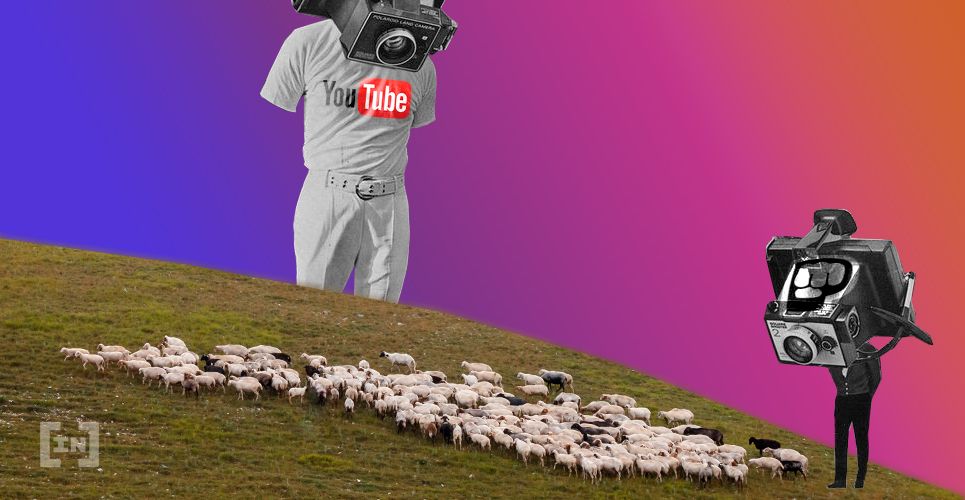The discussion around blockchain technology is often that of giving power back to the users. This could refer to their financials, to their internet browsing, or to the types of content they consume. The ability to control the world of content is especially dominant, considering the companies in power limit most content platforms.
Take YouTube, for example.
YouTube is the internet’s home for influencers — a space for anyone to share their views on the world. However, a space for everyone means some rather questionable content will make an appearance. Videos promoting white supremacy or school shootings have made their rounds, despite the platform’s best efforts to moderate.

Bringing In the Critics
This, unsurprisingly, has drawn criticism towards Google, the owners of YouTube, who have clapped back by saying there’s simply too much content for staff to sift through — even with the help of artificial intelligence and machine learning. In fact, during a recent interview with CNN, Google CEO Sundar Pichai said that, despite its “combination of machines and humans,” the company is still letting through around one percent of the content. While a 99 percent success rate sounds ideal, the one percent that pushes through is often divisive enough to cause a reaction. Aside from pure hate content, the platform has to decide what it classifies as hate and what’s really free speech. Pichai says that this classification is continually changing. To help enforce it, the company has hired “thousands of individuals” to take all of these videos down.
User-Focused
YouTube’s solution to moderation is rough, as it is with many social media platforms — but the answer isn’t to ask Google or Twitter to moderate the content. Instead, the users should have a hand in moderating the content they consume and create, like on a blockchain-based platform. The community should see offensive content and have the ability to vote on what to do with it. Better yet, they could downvote the user, altering their reputation and diminishing the chance of this content even showing up anywhere. Users would be monetarily incentivized to monitor the marketplace they participate in and the community wouldn’t have to hear a company say it defends supremacists. Many blockchain social media platforms have those systems in place — and many more. That’s not even to mention the ability to benefit financially from creating valuable content while pushing users away from hate and towards more productive things. What do you think about content moderation on social media platforms? Is it okay in the hands of companies or should the community have a hand? Let us know your thoughts in the comments below!Disclaimer
In adherence to the Trust Project guidelines, BeInCrypto is committed to unbiased, transparent reporting. This news article aims to provide accurate, timely information. However, readers are advised to verify facts independently and consult with a professional before making any decisions based on this content. Please note that our Terms and Conditions, Privacy Policy, and Disclaimers have been updated.

Max Moeller
Max is a cryptocurrency journalist with an affinity for games and emerging technology. After leaving school to start a writing career, he wrote his first article on blockchain and fell down the rabbit hole. Since starting in 2017, Max has worked with multiple blockchain startups and crypto enthusiast spaces, doing his best to educate the world on the nascent technology. Max has been published in various blockchain and crypto related magazines before settling down at BeInCrypto to focus on...
Max is a cryptocurrency journalist with an affinity for games and emerging technology. After leaving school to start a writing career, he wrote his first article on blockchain and fell down the rabbit hole. Since starting in 2017, Max has worked with multiple blockchain startups and crypto enthusiast spaces, doing his best to educate the world on the nascent technology. Max has been published in various blockchain and crypto related magazines before settling down at BeInCrypto to focus on...
READ FULL BIO
Sponsored
Sponsored
